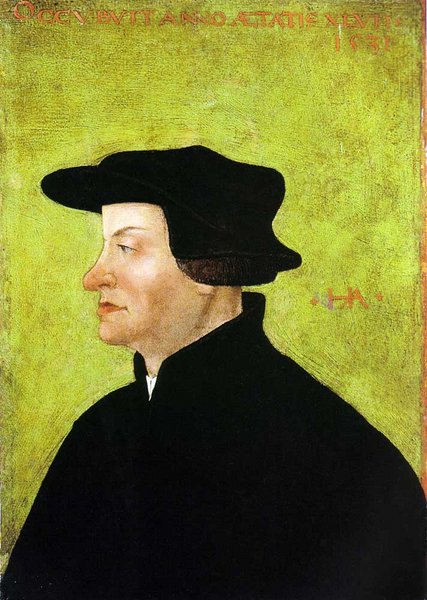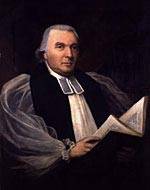
The World Communion of Ameliorate Churches (WCAC) is the largest association of Confessional churches in Terra and one of the largest global Hosian communions with its member parties claiming to represent over 160 million adherents in Saridan, Dundorf, Endralon and New Endralon. This ecumenical Hosian body was formed in November 4107 and its Headquarters is located in Kispilgon, the capital city of Endralon.
Ameliorate and Confessional are two terms that are often used interchangeably for adherents of the Reformed Hosian faith, however it is worth noting that in some countries there are separate Ameliorate and Confessional Churches that have notable doctrinal differences over governance, theology and social practices. Currently parties linked to WCAC and heavily influenced by Ameliorate theology dominate in Saridan and Endralon.
The WCAC is a Terran organisation that aims to bring Ameliorate Churches together in cooperation. It also aims to provide a forum for parties aligned with the principles of the Ameliorate faith together but also allows parties in nations with Ameliorate Churches to represent those Churches, even if the party holds neutral or secular positions.
This post has been prepared as an overview of the organisation and as an introduction to the Ameliorate faith.
Overview of Ameliorate or Confessional Churches
History - Origins
Confessionalism is a Reformed Hosian Church owing its origins to the Reformation in Dundorf in the 16th century. Gert van Tassel, the influential Dundorfian theologian, is recognised as the founder of the Ameliorate confession, a Dundorfian merchant. He had established the first identified congregation in 1523.

Gert van Tassel
Ameliorates were initially heavily persecuted, although inn 1530, King Gerhard I issued the Bekennenden Gesetze (Confessing Laws) of 1530 which compelled toleration while forbidding the further conversion of Catholics to Independent Confessional Christianity. However this toleration was followed by the pogrom of 1537. While violence and murder against individual Ameliorates was not uncommon, 1537 saw the first major attack on an Ameliorate community since its inception nearly two decades earlier.
On Easter Sunday 1537 a mob of Patriarchal peasants, inspired by their Catholic clergy's sermons of marched to the Ameliorate town Wurtburg. The mob quickly looted and sacked the town before brutally torturing and murdering four hundred Ameliorate men and raping dozens of women before looting churches. Many smaller pogroms and isolated acts of violence continued throughout the sixteenth century but became less and less common as more of the peasantry converted
By 1570 the Ameliorate communities had grown in strength in Dundorf and in that year the Confessional Ameliorate Church of Dundorf was established under the guidance of the Rev. Götz Rainer Immendorff and sanctioned by King Karl Gustav VI as the established Church of Dundorf. By 1610, almost half of the peasantry of Dundorf classified themselves as Reformed Protestant.

Rev. Götz Rainer Immendorff
Spread of the faith and the Duntrekkers
Confessionalism in Dundorf developed along two separate paths through the late 16th and early 17th centuries. A new Independent Confessional Hosianism of the regular peasantry was not considered the same as the Ameliorate confession practiced by the Dunnischen and the Dunnischen found themselves sidelined.
Throughout the 17th and 18th centuries, the younger generations of Dunnische grew wary of the political and economic restrictions still in place upon them. These generations were supported in their efforts by like-minded ministers who preached Dunner exceptionalism and the apparent Dunnische covenant with God to create a religious "city on a hill" free from outside influences.
Modern scholars have termed this "Pandunnischismus" (Dunnische nationalism), "Dunnische destiny", or the "Dunnische Covenant". They have also cited, however, the overpopulation of the Dunnische areas in Markerburg and the need to stem the waiting demographic disaster as an additional cause of the "Great Trek".
Soon, brave young Dunnische families left their homeland and ventured into Terra on their people's "Exodus" in search of their respective "Canaan" for which God had promised them in their Covenant; the very land where they were to build their "New Jerusalem" upon a hill. In 1790, Reverend Piet van Merwerzuider led the largest of these "treks" bringing with him nearly 350 families totally around 16,000 people to Saridan.
In what became known as the Groot Trek, the newly-dubbed Duntrekkers departed Artania via Rutania, Aloria, or Kirlawa and sailed to various locations across Terra; notably Saridan, Likatonia, Pontesi, and Malivia. In those nations - many of which were sparsely populated and lacked real governments - they could build new pious and wealthy lives as rural farmers or ranchers.
The term "Duntrekker" soon became synonymous with anyone directly associated with the community. The old term "Dunnische" was almost forgotten, even in Dundorf, but is still often used by Duntrekkers abroad to distinguish those who stayed behind to themselves. The Duntrekkers are in many cases responsible for the spread of the Ameliorate faith around Terra and as such heavily figure in symbology and understanding of the Ameliorate faith. Saridan is a nation that was built by the Duntrekkers and as such Duntrekkers feature prominently in national iconography.
Modern Era
In the modern era the Ameliorate faith has spread across Terra and in many countries has little association with either Dundorf or the Duntrekkers. Conversion in Endralon, particularly amongst the ethnic Endralonese led to the export of the faith to New Endralon during the colonial era. Other Hosian Churches have also been heavily influenced by the Ameliorate confession even if they no longer adhere to the values and doctrine of the confession.
Theology
In its early days the theology was often referred to as "Tasselism" after the founder of the faith. However the terms Ameliorate or Confessional are now generally used to describe the theology. The theology of Ameliorate Churches is outlined below.
- The core ethos was and has been to escape persecution; their development model was based on a very insular, inward-looking civilization, one that feared the outside
- strive for moral purity of all aspects of life; emphasis on trustworthiness as a form of grace
- emphasis on individual and business conformance to Bible & Hosian teachings; morality involved in business & business performance; Duntrekkers consistently rank amongst the most trustworthy business ventures in Terra
- specific roles of men and women, go back to Bible and original sin
- worship in church strictly regulated by what is in Bible
- believe themselves to be the chosen people of God; a Covenant exists to create a new Yerusalem in a new Kanaan which explains the numerous Treks
- persecution was bestowed upon them as a test of their faith
- created strong bond between communities
- No separation of Church and State; they are one in the same
- An emphasis on private study of the Bible
- The priesthood of all believers
- Simplicity in worship, the exclusion of vestments, images, candles, etc.
- Did not celebrate traditional holidays which they believed to be in violation of the regulative principle of worship.
- Believed the Sabbath was still obligatory for Hosians, although they believed the Sabbath had been changed to Sunday
Some elements of the theology rarely feature in modern Ameliorate discourse and there are differences between fundamentalist, mainline and liberal Ameliorate Churches. However, Amelioratism is typically socially conservative.
Principles
The five principles shared by all Ameliorate Churches are as follows;
- man cannot do anything to obtain salvation, only God aids you in doing so; God initiates (unconditional election)
- public worship in a church guided by minister is necessary (regulative principle of worship); God says how to worship in Bible, and prohibits everything else
- total depravity doctrine that all mankind is enslaved to sin from the moment of birth
- relationship between God and man is a covenant and cannot be changed by man;
- God is present in all realms of earthly life
Religious Practices
Governance - Churches typically have a Presbyterian organization with Elders run local church, presided over by a Teaching Elder. However in Dundorf there is also a system of Episcopal governance. The village church is presided over by a Begeleideprediker (Guided-preacher) who normally has spent several decades studying scripture, discussing theology, and learning religious traditions with elder preachers. However, since the process of earning a "preacherhood" is time-consuming and immensely difficult the number of qualified preachers is few and therefore it is not uncommon for a collection of village elders to preside over sermons and church services; the idea being that several experienced elders together have enough knowledge to carry out a sermon. Major services such as weddings, funerals, and baptisms must be performed by a qualified Begeleideprediker.
An Ameliorate Church in Endralon
Services and Sacraments - Varies between congregations with short and long sermons. Hymm singing features in some congreagtions while in others only the Psalms are read. Generally Ameliorates focus on blessings (preacher discusses events around the village such as animal births, child births, anniversaries, harvests, etc and has "congregation" thank God for these blessings), the idea is to allow the community to "see" how God has helped and blessed them. Communion is given twice yearly; and on special occasions such as baptism, weddings, or funerals. Finally with regards to baptism, adult baptism is most common in Artania although the Duntrekkers tended to baptize "breeched" boys (about 5 years old) and girls upon reaching puberty (often considered age 12 regardless of physical puberty)
Membership of the WCAC
For political parties wishing to join the Communion please follow this link. Membership is open to all parties that are influenced by Amelioratism, are supported by Ameliorates, operate in countries with an Ameliorate tradition or are just interested in religion in general. Currently member parties come from Saridan, Endralon, New Endralon and of course Dundorf.
